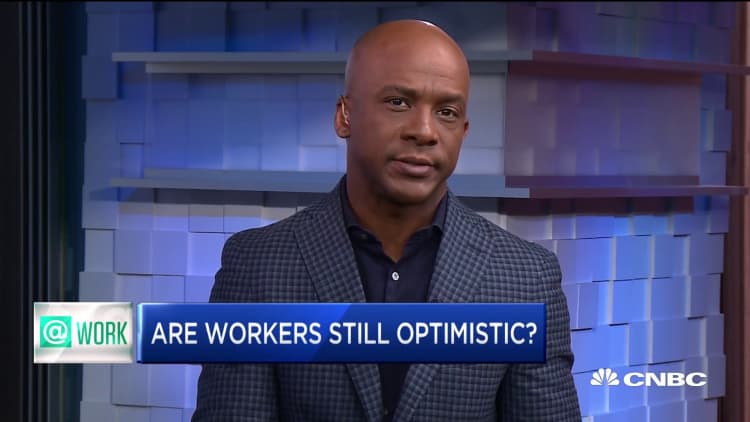Former McDonald's CEO Steve Easterbrook was responsible for some big successes. But whatever value his decisions and acquisitions bring to the company in the future, they couldn't save him.
Even though Easterbrook oversaw several key technology acquisitions for McDonald's at a time when the rise of mobile order and delivery are pressuring the restaurant sector, and even though he was widely seen as helping to shore up investor confidence in the fast-food giant, he was axed over the weekend by the board after it was revealed he had a romantic relationship with a colleague.
"Given the values of the company, I agree with the board that it is time for me to move on," Easterbrook wrote in an email to employees.
The key word in that sentence: values.
Values increasingly matter to workers across the nation, and in a tight labor market with intense competition for talent, values should matter to employers. On Monday morning McDonald's announced its chief people officer was also leaving the company, though it provided no reason.
Sixty-nine percent of workers say it's very important to work for a company with clearly stated values, while another 22% say it's somewhat important, according to the latest CNBC/SurveyMonkey Workplace Happiness survey.
More than 9 in 10 employed people say it is both important to them to work for a company with clearly stated values (92%), as well as for a company whose values are aligned with their own personal values (91%). These results vary little by age, race, gender, salary, full- or part-time status or job level.
What's more, a third of younger workers (ages 18–34) say they have left a job in the past five years because their company did something that was "morally unacceptable" to them, according to the survey.
Aligning worker and company
Elmer Guardado, an account coordinator for the Austin-based public relations firm Buie & Co., is 22 and fresh out of college. He said he feels lucky that his company prioritizes transparency and employee happiness. "It is deeply motivating to know that my work is not only being appreciated but also contributing to the company's larger goals," he said.
"Our results have consistently shown that workers prioritize finding meaning at work, so the fact that so many workers say it's very important to work for a company with clearly stated values really bolsters that," said Laura Wronski, senior research scientist at SurveyMonkey, which analyzes the Workplace Happiness results for CNBC.
SurveyMonkey's analysis of the latest Workplace Happiness Index results finds 91% of workers say it is important to work for a company whose values are aligned with their own personal values. The survey also finds employees who place more value on working for a company with clearly stated values are more likely to say they find their work meaningful: This is according to 92% of those polled, versus 69% of those who say their work is meaningful and say company values are not important to them. These results vary little by age, race, gender, salary, full-time or part-time status, or job level.
"We've seen an increased push by corporations recently to take into account more than pure profits when making business decisions — to add in considerations regarding not just what is best for their shareholders but what is best for their workers, their customers and their community," Wronski said.
She pointed to the Business Roundtable announcement in August to define a corporation's mission and responsibilities as going well beyond generating returns for shareholders. McDonald's shares fell by 3% on Monday.
"These survey results show that corporations also are being held to a higher standard by their own workers. Young workers in particular are willing to walk out if they deem their company is acting in a morally unacceptable way, but all workers say they want to be associated with a value-oriented workplace."

But Guardado was also realistic about how much power many young workers have if an employer does something that offends their values. "Due to crippling student debt and other harsh realities of life, I think it's important to acknowledge that leaving a job because of a moral conflict is a privilege we don't all have; however, I know that this kind of tension would definitely put me back on the job market."
While the CNBC/SurveyMonkey data indicates that most workers (80%) say they are likely to leave their job if the company they work for does something they find to be morally unacceptable, the actual percentage that have felt compelled to take that action is lower.
A majority of workers (58%) say they've never left a job because the company they worked for did something they found morally unacceptable. A small number (7%) say they've done this just in the past year, while another 13% say they did this one to five years ago. Women and men are equally likely to say they've had to take this action in the past.
— Additional reporting by CNBC's Jacob Douglas






